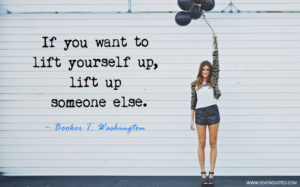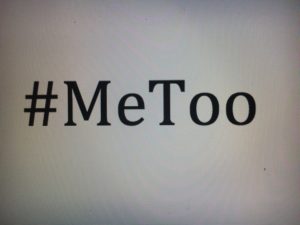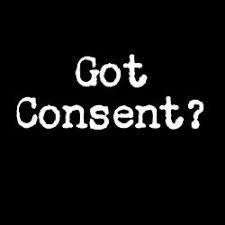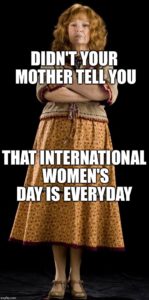We have started speaking up. That’s the good news. Women in children’s literature – as in many other professional and social communities – are speaking up about sexual violence, harassment, pay inequities, and other areas where we’ve been overlooked, under-respected, and marginalized.

We’ve demanded fairness from conference and festival organizers. Started the conversation about who gets paid what and why promotional budgets and award committees favor men. Asked the women in educational communities to take a hard look at the way some of them fawn over our kidlit brothers at the expense of women. Talked about how we sometimes uphold patriarchal attitudes ourselves without realizing it, and pondered how to identify the places we need to improve.

Lots of important, private conversations have grown from out this public discussion. Conference and festival organizers seem to be responding to the call for gender- and racial diversity, though we’ll have to see if their actions reflect their promises. I know I’ve been chatting with the people at my publishers about these issues and more. I suspect many of you have, too.
I’ve been disappointed that the issues facing women of color continue to take a back seat in many of these conversations. Laurel Snyder’s No White Panels pledge was an overdue response to the problem, but we need to do much, much more to create a community that is equitable, accessible, and comfortable for everyone.

White feminism has a well-deserved shitty reputation for ignoring and harming women of color. I’d like my fellow white ladies of kidlit to recognize that women of color face all of the issues that white women face PLUS systemic institutional racism. As much as we want men to own their privilege and balance the scales of justice, we must recognize that white women have the same responsibility.

As more women gain enough confidence to speak up about being sexually assaulted or harassed, I’ve begun to see and hear some disdainful muttering from women my age. There seems to be a generational divide between what women in my cohort (older than 50) believed constitutes harassment and how younger women see it. Women of a certain age have been fighting these battles for a very, very long time. If you are 25 and angry about this, just imagine your rage level if you were 65.

But if you’re 65, imagine what it feels like to be 25 and have older women criticize you for complaining about harassment because it isn’t as physical or intense as what you endured.
It’s not a competition, my friends. Let’s not get sucked into the damaging game of comparing our wounds and ranking them.
The last three decades have brought change, thank goodness. But change doesn’t impact everyone the same way. The legal definition of consent and the notion that professional spaces like conferences and writing classes are not hunting grounds for sexual partners are new concepts for some. Not everyone is up-to-date on the evolving legal and ethical definitions of harassment.
People who are constantly marginalized sometimes absorb the disrespect and hatred aimed at them. They then turn it on others as a way to ease their own pain. If you feel yourself doing this, dig for the roots of that emotional violence. Give yourself the time and gentle care that you need to heal.
Our strength lies in our shared understanding of injustice and our common commitment to providing children with the best books possible. If you’re feeling ouchy about any aspect of the discussions this month, reach out and talk to someone about it. If someone reaches out to you, listen with love.

I am so grateful for all of you, for the women who have written about these topics, talked about them, reflected on how we can create change, marched, knitted, and somehow, in the middle of all this, continued to write and draw. I’m grateful for the men who are supporting us, too – we see you guys and are happy to have you walk beside us.
Let’s continue to speak up, to listen, to raise up each other’s work and to use this energy to change the world.

Well done, my friend.
In 1979, I was 15 first time I was sexually harassed on the job. The perp was a 30-something coworker. While we were getting our jackets from the back room after closing the bookstore, he threw me on a desk and kissed me until I managed to pull away. I referred to it as “he made a pass at me” until #MeToo . I have a doctorate in psychology. I’ve been in therapy for sexual abuse. I’ve worked with victims. Until #MeToo I never realized an adult assaulted me. Maybe because I was being sexually abused at home and I didn’t feel 15, I didn’t realize what he did was a crime. I bet there are thousands of other former teenagers of my generation who have similar stories. Our teens and young women today are more educated and hopefully more likely to realize and speak up if they are harassed. We need to support each other, not compete. It’s all bad.
Looking for any opinions or input. The brother of the adult coworker who assaulted me as a teen just posted a GoFundMe link on my hometown FB group which I co-moderate. Apparently he’s got some brain disease and the bro wants donations. My first visceral thought was to out the guy, but his family is suffering and I’m not vengeful. My second thought was delete the post, since we don’t allow solicitation. What would you do? #MeToo